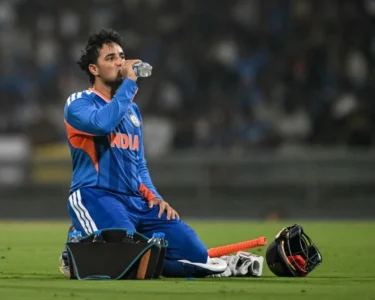Introduction of the Stop Clock Rule
The Stop Clock rule, currently undergoing a trial period, is set to become a permanent feature in international cricket, with its implementation approved for the upcoming Twenty20 World Cup in June. Introduced by the International Cricket Council (ICC) on an experimental basis last December, this rule will now be incorporated into the standard playing conditions of the game.
Expansion to White-Ball Cricket
This rule, requiring the display of an electronic clock between overs, will apply not only in Twenty20 Internationals but also in all white-ball cricket, including One-Day Internationals (ODIs). Its primary purpose is to ensure the timely completion of matches.
Implementation Details
Fielding teams will be allotted 60 seconds between overs, with penalties for breaching the time limit. Umpires, including the third umpire, will enforce the rule, issuing warnings before imposing penalties.
Enforcement and Penalties
Enforcement of this rule falls on the umpires, with the third umpire responsible for starting the timer. The on-field umpires will issue two warnings to the fielding side before imposing a five-run penalty for a third offense or any subsequent violation.
Umpires have the discretion to decide whether delays are caused by batsmen, DRS calls, or unforeseen circumstances.
Permanent Adoption and Approval
The ICC initially trialed the rule from December 2023, with the trial period scheduled to end in April. However, the ICC and its cricket committee have seen enough merit in the rule to make it permanent. It will now be a universal rule for every ICC white-ball game.
The rule’s approval took place during the ongoing series of ICC meetings in Dubai.
The ICC Board and the influential IBC board of the ICC will meet on Friday. As of now, there has been no discussion on the Champions Trophy.
However, there is interest in whether the board members will address the issue, especially considering Pakistan’s designation as the host country and the expected refusal of India to tour Pakistan. This decision led to a hybrid model for last year’s Asia Cup.







